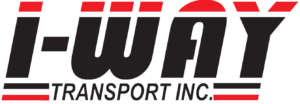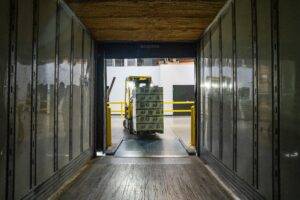Speed in shipment will always be a priority. Fast and efficient shipping is crucial for a number of reasons, including keeping up with the competition, meeting customer demand, avoiding spoiling, and freeing up time that would otherwise be spent on logistics. It has never been more crucial for businesses to have rapid access to the essential supplies they require to maintain operations.
If companies can’t hire quickly enough, they won’t be able to keep up with rising demand for their services, which is accompanied by an increase in the volume of goods being transported, market volatility, and customer pressure. Supply chains are particularly vulnerable because of the widespread effects of the current labor crisis. Adapting to the needs of a customer base that has evolved through time has resulted in a large increase in job openings. Even while everyone in the supply chain, from warehouses and ports to shipping companies and logistics offices, is doing their best, shortages still occur.
Sometimes it’s hard for logistics companies to find qualified drivers for their business. As they have trouble finding qualified warehouse staff to help with materials handling, logistics, and supply chain issues. With an ever-increasing desire for cost-effective transport comes the constant challenge of finding new ways to stretch limited resources. Despite current resource-related concerns like labor shortages, new technologies can provide the support necessary to not only keep up with the needs of the market and supply chain but also to stimulate higher efficiency.
How to Prevent Delays During the Booking Process
Businesses are finding it harder to plan and deliver products promptly and effectively as the truck driver shortage has repercussions throughout the supply chain. Because of these holdups in getting dependable truck capacity, items are sometimes kept in limbo, resulting in prolonged delivery periods, product shortages, and accidental overstocking. However, advances in technology may provide a solution to the current scarcity of drivers.
1. Increased Capacity Flexibility Via Mergers
Reduce expenses through digital automation while avoiding or mitigating disruptions caused by carrier capacity limitations by expanding your capacity network to include more alternatives from numerous modes and carriers. However, conventional methods for creating a comprehensive carrier database entail much manual labor and time commitment. It can take weeks or months to onboard each addition to a network, and it doesn’t even account for the time needed to analyze performance and select a new provider. Look at Transportation Management System (TMS) choices that include a vetted network of integrated carrier options to swiftly enhance your existing network and develop partnerships across your chosen lanes.
2. Save Time & Effort Through Automated Planning
Logistics planning is one of the most successful ways to “do more with less” because of its potential to optimize shipments for efficiency, but it is also one of the most difficult because of its reliance on manual processes. The use of automation can help to reduce the severity of this problem. Shippers can reduce tender lead time, costs, and negative carrier relations as well as increase positive consolidation opportunities by using automated planning to optimize orders, select carriers, and execute shipments. This in turn reduces the number of trucks and road miles required to transport shipments.
For this to be automated and reliably effective, you’ll need complete transparency into every step of the process and sophisticated analytics to evaluate the specifics of each order, such as its size, weight, shipping address, and expected time of pickup and delivery. With the help of technology that can take into account all of these aspects, shippers have increased truck utilization and routing efficiency, cutting down on unnecessary road miles by more than 40 percent while saving 30 to 40 percent on transportation costs.
3. Data-Driven Strategic Planning
Due to the driver shortage, capacity, performance, and cost uncertainty are significant issues. There are always potential threats in any supply chain, but being aware of them is essential for keeping things moving smoothly. What methods can businesses use to achieve this goal? Data must be used less reactively and more proactively.
Even though supply chains create massive volumes of data, many in the shipping sector struggle to make sense of it. Since many companies lack complete transparency into their expenditures, the importance of goods they handle, or the underperforming lanes in their network, they cannot negotiate favorable terms or plan strategically. Despite this data, few small and medium-sized businesses have personnel on hand with experience in operations or analytics who can use it to their advantage.
It is feasible to gain real-time insight from your supply chain technology data by collecting and centralizing it on a single platform. Demand, and more critically, driver burden, may be better handled by digitizing operations and better comprehending data surrounding routes and supply capacities. This can also lay the groundwork for digital infrastructure, paving the way for further transformation using artificial intelligence and machine learning to enhance foresight.
It’s Time To Prepare for Future
Supply chains can benefit from technology, collaboration, and data to become more robust, effective, and agile. The result is a win-win for the organization, its customers, and its vendors. New technologies boost transparency, coordination, adaptability, and resilience all along the supply chain. Also, businesses can benefit from using cutting-edge innovation to help them prepare for and respond to the unexpected. Consider both near- and far-term expansion when making technological investments to ensure scalability.
In order to be future-ready, we at I-way employ top supply chain methods for handling delays and integrating cutting-edge technologies. You can receive a free quote from I-Way logistics if you’re in the market for reliable supply-chain services with on-time deliveries.




